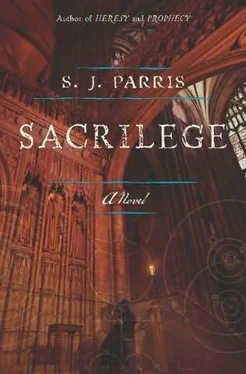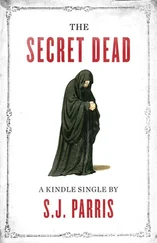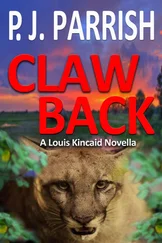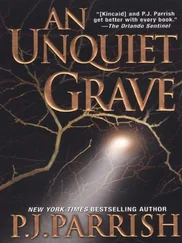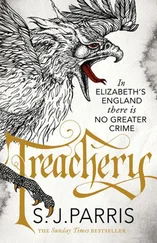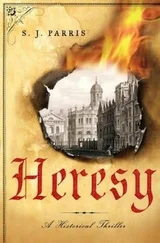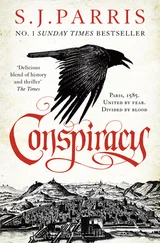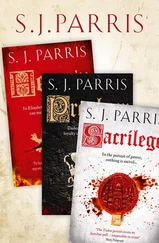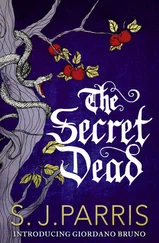“There.”
I crouched to look at the bloodstained ground. So this was the spot where Sophia’s vicious husband had lain for his last minutes, lifeblood leaking away into the dust, surprised by the blow that came out of the darkness. Had Sir Edward seen who stepped towards him, weapon held aloft? Would he have known his killer, or known why that person had come for him? I traced a line in the reddish dirt with the tip of my forefinger. It was hard to summon any pity for the man when you knew his history. Sitting back on my haunches, I peered up, trying to imagine the last sight he would have seen: the towering walls of the cathedral on one side, the houses among the priory ruins on the other. I noticed that the path continued around the side of the chantry chapel and disappeared.
“Where was he coming from?” I asked, trying to work out the dead man’s last route.
“He dined with the dean in the Archbishop’s Palace that night,” Harry said, leaning on his stick. “I was there.”
“The Archbishop’s Palace is directly opposite the main gatehouse, though, at the western end of the cathedral, is it not? Why would he come around the back of the cathedral on his way home, then? Is there another way out?”
“He mentioned at table he was going to take a glass with the canon treasurer after supper. They were friends. But I was tired and went home early that night so I didn’t see if he left the Archbishop’s Palace alone.”
“Whoever attacked him must have known he would come this way,” I said. “You don’t cut a man down like that by chance. And you say anyone at the dinner could have heard him mention where he was going. What else is this side of the cathedral, apart from the cloister?”
Harry considered.
“The Chapter House, but that is only used for official meetings. And the library, which is housed in a disused chapel just behind us, the other side of this chantry. Then there are more of the canons’ residences.” He hesitated. “The canon treasurer’s house is on this side, of course.” He rubbed his stubbled chin.
“Are the cathedral doors locked at night?”
He shook his head.
“God’s house should be open around the clock, according to the dean. Not to just anybody, of course—the precinct gates are closed so the town can’t get in. Only the crypt is locked after Evensong, by the dean himself, as some of the more valuable ornaments are stored there. He is the only one with a key. But any of the residential canons may go into the main church and pray at any time of the night. Provided they’re not afraid to brave the ghosts.” That rasping laugh again; he fluttered his free hand in an approximation of spectral movement.
“You have ghosts?” I glanced at him, amused.
“Oh, naturally we have ghosts. Several, I should think. The south-east end of the cathedral precincts was formerly the monks’ cemetery, and beyond it the lay cemetery. The dead of centuries are piled up under our feet. Not to mention our most famous murder victim.”
“Perhaps your most recent one too.”
“I’m sure he has joined the queue. Do you believe in spirits, Bruno?”
I hesitated, considering how to answer this without compromising myself.
“I have seen nothing to persuade me that the spirits of the dead walk among us, if that’s what you mean.”
He smiled.
“Nor I. Yet there are plenty who are persuaded, and not just among the simple folk.” He gestured towards the cathedral. “There are stories of candles lit at night, statues that shift shape, human figures that form themselves from the very shadows. I know good stout Protestant canons who will not walk the precincts after dark for fear of what might come out of the mist.”
“A pity Sir Edward Kingsley didn’t have the same qualms—he might have kept his head intact.”
Harry gave an irreverent chuckle. “Do you want to take a look inside?”
I agreed eagerly, keen to see the interior of the great church, though my thoughts were distracted. I had even less idea since arriving in Canterbury of how to proceed with the business of Edward Kingsley’s murder. Seeing the place where he had died had only led to more questions, just like my encounter with Fitch the apothecary.
Harry shuffled his way along as the path rounded the chantry chapel and we found ourselves in a small courtyard with the cathedral on our left and a smaller chapel on our right. Ahead of us was a well-kept cloister, a stretch of green lawn visible through the range of rounded arches that enclosed it on all four sides. I followed at Harry’s frustrating pace, thinking as I watched him that his physical health must surely restrict his ability to gather information, even if his position in the cathedral chapter did give him intimate access to the dealings of the dean and the other canons. If he was confined to his house with his head buried in historical manuscripts most of the time, I wondered how much use he could be here to Walsingham.
We passed into a flagstoned passageway touched with a sharp smell of damp, where the sudden cool of the shade made my skin prickle like gooseflesh. The passage ran between the body of the cathedral church and a majestic building on our right that Harry pointed out as the Chapter House, before opening out into the cloister. He turned left along the tunnel of columns branching into delicately traced vaults overhead and we found ourselves in front of a small door into the cathedral. Harry turned the handle and we stepped through into the reverent silence of ancient stone. The metallic click of the door closing behind us echoed a hundred feet above us in the vast arches of the ceiling. I craned my head upwards, realising only belatedly that I was holding my breath.
“Right here.” Harry lowered his voice; the place seemed to demand it. “This is where they killed Becket.” He pointed to the floor in front of a blank wall of white stone, to the right of an elaborately carved screen into a private chapel.
Though sunlight still streamed through the high windows on the other side of the cathedral, licking the walls above our heads, this little corner was sunk in shadow. There was nothing remarkable about it; when I had learned the story of Becket’s murder as a young novice, I had pictured the saint struck down by the gang of knights before the high altar, in the heart of the church, not in some side chapel that was barely more than a vestibule. Harry moved to stand beside me and we remained in respectful silence for a moment; one sound Protestant churchman and one heretical ex-monk, both of us derisive of the superstition that attended saints’ cults, yet both apparently caught by the sense that this famous death demanded acknowledgement.
I was distracted from my thoughts by the sensation that we were not alone. I glanced up and was startled by the sight of a woman standing just behind us, tall and slender, dressed in the mourning clothes of a widow, her face veiled in black. Beside her stood a thin boy with large eyes. They seemed to have been watching us. The woman lifted her veil to reveal an expression of curiosity. She was perhaps my own age, with delicate features and haughty blue eyes that roamed over my face mercilessly. Her skin was white as a marble effigy against the black of her dress.
“Mistress Gray,” Harry said, with a polite bow. “Good day to you.”
The woman dipped her head, her eyes still on me. Then, without a word, she reached for the boy’s hand and swept past us towards the door, giving me a nod on the way out as if to suggest that we knew each other. Something in her penetrating look made me uncomfortable.
“Who is that woman?” I asked, when she had gone, still looking at the door.
Harry smiled. “That is the Widow Gray. A woman of mystery.”
“Really?”
Читать дальше
Конец ознакомительного отрывка
Купить книгу
